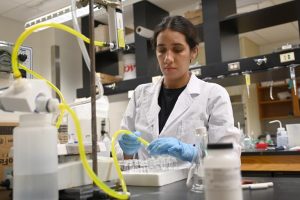
Oct. 29, 2024
Filtering out forever chemicals
Mizzou Engineers secured an EPA grant to pursue an innovative method to remove PFAS from water and degrade the chemicals.
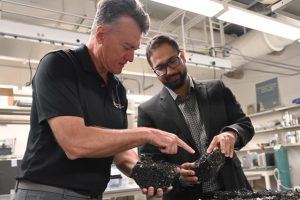
Oct. 15, 2024
Where rubber meets the road
Mizzou researchers are devising a way to demonstrate how rubber-based asphalt reduces greenhouse emissions.
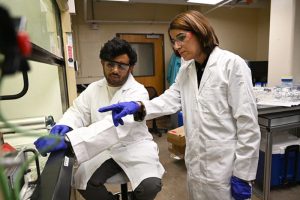
Sep. 16, 2024
Designing a better water filter
Mizzou researcher Maryam Salehi is developing a fabric-like filter to remove tiny plastics and lead from drinking water.

Sep. 4, 2024
Investigating microplastics
Maryam Salehi from Mizzou’s College of Engineering spent the summer studying microplastics with colleagues in Germany.
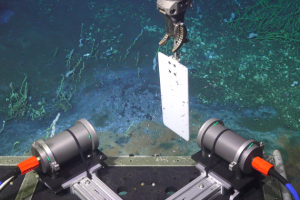
July 9, 2024
Bubbling with curiosity: Mizzou engineer investigates oceanic phenomenon
Binbin Wang has spent years researching hydrocarbons in the Gulf of Mexico and discovering how natural seeps in the ocean floor affect the environment. He is now working on a long-term research project using a National Science Foundation research vessel.
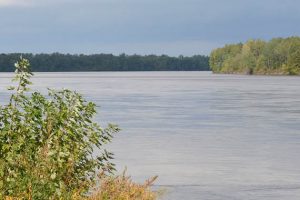
June 7, 2024
Missouri Water Center receives more than $700,000 in EPA seed grant funding
Cross-disciplinary researchers to look at water quality, quantity issues through eight research and education projects at the Missouri Water Center.
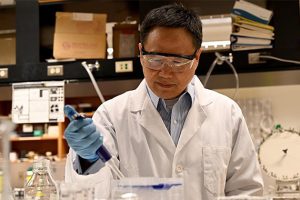
June 6, 2024
Helping safeguard a new reservoir in north central Missouri
Researchers at the Missouri Water Center have been awarded a $5 million grant from the U.S. Environmental Protection Agency for sustainable water management. They’ll use the funds to ensure that the water remains safe as the basin fills.
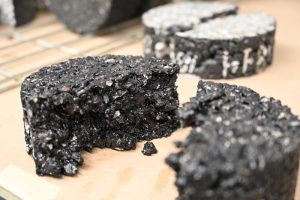
May 30, 2024
Ask a Mizzou expert: Why do potholes form on roads?
As the nation’s drivers zig and zag to try to avoid potholes, University of Missouri expert Punya Rath explains the science behind these street craters. A member of the Mizzou Asphalt Pavement and Innovation Lab (MAPIL), Rath specializes in researching asphalt materials.
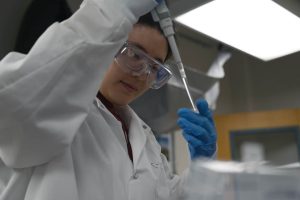
May 14, 2024
Civil engineering graduate students make strides in water quality research
Graduate students at Mizzou are adventurous and inquisitive, driven by the quest to discover the unknown. They dive headfirst into finding solutions to some of the world’s most pressing problems. Two civil engineering graduate students are diving into the world of clean water, and recently received scholarships from the Missouri Water Center to continue their research.
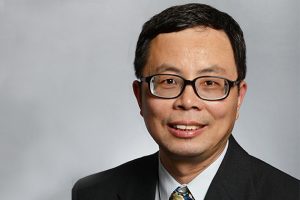
Oct. 26, 2023
Mizzou Engineer part of Dept. of Energy project to cut greenhouse gas emissions at wastewater treatment plants
A Mizzou Engineer is part of a multi-disciplinary team working to improve wastewater treatment processes to cut greenhouse gas emissions by half without increasing costs to plants.